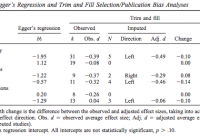Author Archives: Nils Koenig
World Leaders on Facebook
Do you still remember President Obama’s first Facebook post as @POTUS on 9 November 2015? “This is a place where we can have real conversations about the most important issues facing our country – a place where you can hear directly from me, and share your own thoughts and stories.” The Obama @POTUS page, including… Read More »
Facebook LIVE – what is it (and what not)
Facebook Live is a new powerful social network feature that was gradually introduced only a few months ago and it is beginning to grow in relevance. In part this is due to Facebook’s preference and prioritization of live content in its algorithms that determine who gets to see what and when. But secondly this is… Read More »
Social Media Guidelines for Employees
I have been involved in drafting and promoting quite a few so called social media guidelines – including for GIZ and Daimler. Social media guidelines are basically a tool to sensitize your employees for how they might be seen when blogging or posting on social networks. This is important as individual employee behavior on social… Read More »
History of Public Relations
Trump and Clinton PR strategies compared
Dr. Spiro Kiousis, associate dean for the College of Journalism and Communications, has reviewed the PR strategies of both US presidential candidates over here on the IPR Blog, looking at public relations efforts along the lines of media relations, donor relations, volunteer relations, and social media engagement. He identifies a clear advantage for Hillary Clinton in both… Read More »
2017 Edelman Trust Barometer – The Trust Crisis
The Edelman Trust Barometer is one of the most important tool to detect key trends for public relations and communications in general. Just released, the 2017 Edelman Trust Barometer revealed that trust is in crisis. The general population’s trust in four key institutions – business, government, NGOs, and media – has declined considerably, a phenomenon not… Read More »
Private equity pioneer gives lessons in investor relations
Henry Kravis, founder of private equity giant KKR gave Bloomberg a remarkable interview, looking back at 40 years in the investment business. The interview has a view fascinating insights into investment decisions and interaction with investor relations efforts. “I compare their responses to the dot-com period around 2000. Back then I’d ask, ‘What’s your strategy?’… Read More »
Logo design – analysis
When researching for an earlier post on logo design, I came across an interesting analysis of popular brands’ logos, that I’d like to share with you. Some of the findings are that interestingly many of the more successful brands include the color “blue” as key element. Some of the other findings might be more intuitive – such… Read More »
Sex sells (not as good as you think)!
Two researchers of Ohio State University have conducted a meta-analysis on research on the effect of sex and crime in advertisement. They come to a surprising conclusion – against the common sense notion of “Sex sells”: “As intensity of sexual ad content increased, memory, attitudes, and buying intentions decreased.” They found that as the emotional… Read More »










